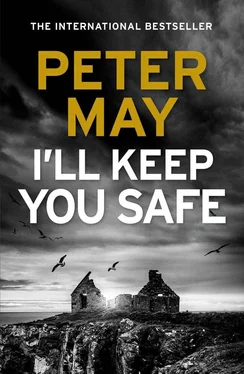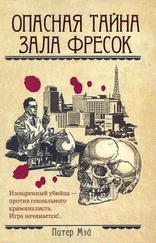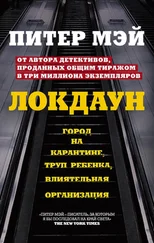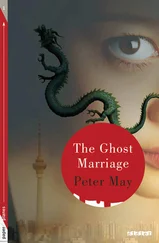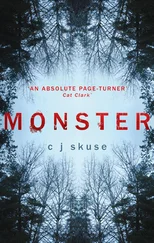They listened mutely to my explanation of Ranish’s financial imperatives, and no matter how reasonable it all sounded, I knew that everything about it would seem unreasonable to them. When I had finished, my dad slapped his palms on his thighs and eased himself to his feet.
‘Ah, well,’ he said. ‘Can’t sit here chatting all day. Things to do.’ His way of avoiding conflict or expressing emotion. I watched him walk stiffly to the door, and felt ashamed of myself. When I was young he had always seemed such a big, strong man. Now all I could see was the old man he had become. Diminished in so many ways.
When he had gone my mother looked at me very directly and spoke for the first time. ‘As if it’s not enough that we lose a son to that family, now we’re losing our daughter to them as well.’
It was then, like a gift from the gods, that Lee Blunt came into our lives.
It was Ruairidh’s idea that we weave what he called pattern blankets. A selection of samples in a single length, each blending one into the other every twenty centimetres. It would make for a unique presentation. Half a dozen pattern blankets, a rainbow of colours and choice. We would take them, he said, to the big international fabric fair in Paris. Première Vision.
I had been spending all morning on the phone, calling old contacts in Italy and Germany from my days at Johnstons, when he came in with the first of his pattern blankets. It looked stunning, and felt like silk to the touch.
‘It’s amazing,’ I said. Then let reality in to cloud my enthusiasm. ‘But, Ruairidh, we can’t afford a stand at PV. Not even the share of a stand.’
‘Doesn’t matter.’ He was grinning, and glowing with that enthusiasm he always seemed able to conjure out of even the darkest moments. ‘I’ve been talking to some folk at the mill. Apparently there’s a kind of side bar that takes place along one end of the sales hall at PV. Like a fringe fair, just off-piste. All sorts of private deals are done, without any need for a stand.’
‘And the organizers are happy about that?’ It seemed to me unlikely, since renting stands was how they made their money.
‘Ah, well, not exactly.’ There was mischief in his eyes now. ‘We’ll have to sneak our samples in.’ And he grinned again. ‘But what’s life without a little risk?’
And so we ended up in Paris that September, the two of us, staying in the cheapest hotel we could find, and taking the RER to the Parc des Expositions on the first morning of the fair, all of our samples crammed into a couple of rucksacks.
We were nervous as kittens as we followed the crowds from the station along the covered walkways, past the various exhibition halls. Design. Manufacturing. Accessories. Until finally we saw Fabrics, and followed the red path up to a wall of glass doors. We had bought our tickets online, and dressed scruffily, hoping to pass ourselves off as students so that our backpacks wouldn’t raise any eyebrows.
We had passed the ticket check when to our dismay a large dark-suited security man drew us to one side and asked us to put our rucksacks on a table. It is hard not to look guilty when that’s exactly what you are, and I was sure that my face would be a dead giveaway. To my amazement Ruairidh was smiling and seemed quite relaxed. He even managed a joke in his bad school French, and the security man cracked a smile for the first time.
Wearing white gloves, he went through both of our backpacks very carefully, laying our samples to one side on the table during his search, and then repacking them when he was finished. Which is when I realized that, of course, he was looking for explosives, not fabrics. He waved us through.
From a mezzanine level with coffee bars and restaurants we looked out over the hall itself. Hundreds, maybe thousands of stands, all closed off by opaque white plastic walls, shimmered away into a breathtaking distance. Each open-topped stand was illuminated by a rectangle of fluorescent light that hovered over it. A long way above that, rows of lights set into the roof illuminated the vastness of the hall itself. It seemed as if we were gazing down on to some small futuristic city, divided and subdivided by streets and alleyways crowded with people, like ants scurrying about an underground labyrinth. It was hard to believe that this was the breeding ground for the clothes that would adorn the models strutting their stuff on the catwalks of the coming winter collections. What we wanted to do was make sure that at least some of those models would be wearing Ranish Tweed.
Along one end of the hall there were coffee shops and restaurants set against the angle of the only windows in the entire building to let in natural light. Tables and chairs ran the length of the wall of stands that backed on to them, and it was here that people sat drinking coffees, making deals and phone calls, cementing friendships and swapping contracts.
Ruairidh installed me at a table with the rucksacks and a coffee to keep me going, while he went off to solicit trade. How he intended to do that I had no idea, and didn’t want to know. I sat for a long time, watching the faces that drifted past, picking up snatches of conversations in English, French, Italian, Japanese. No one paid me the least attention. Eventually I put in my earbuds and turned on my iPod. An hour passed. An hour and a half. I’d gone through three coffees, and was beginning to think I was going to have to find a loo when Ruairidh reappeared, walking briskly through the tables towards me. Following him was a tall young man inclining to plumpness, who looked like a refugee from an art school diploma show. He was wearing a pair of Alexander McQueen bumsters, a torn T-shirt and scuffed sneakers.
I stood up as they arrived at the table. Ruairidh said, ‘Niamh meet Lee. Lee this is Niamh.’ Lee smiled shyly, revealing crooked teeth that were a little too prominent, and shook my hand. His face was unshaven, with the hint of a goatee clinging to his chin, while the sides of his head were cut to the wood and topped by a mess of tousled red hair like fusewire. It was only in that moment that I realized, quite suddenly, that this was the designer Lee Blunt, the new darling of British fashion. I had seen his photograph often enough, but he looked different in the flesh, and much taller than I had ever imagined. It was quite a bit later that Ruairidh confessed to me his certainty that the only reason he had managed to persuade Lee to come and see our samples that day was because Lee fancied him.
But it was Lee and I who hit it off when Ruairidh went to get coffees. Lee sat opposite me and cocked his head a little to one side, casting an appraising eye over me, head to toe.
‘Take a photograph,’ I said. ‘It’ll last longer.’
He laughed. ‘I’m sorry, I’m just dressing you.’
My turn to laugh. ‘Really? Most men want to undress me.’
‘Well, I can understand that,’ he said solemnly. ‘Beauty should always be high visibility.’
‘Flatterer!’
He grinned. ‘I love your accent.’ His was pure London East End.
‘It’s what comes from being a Gaelic-speaker.’
‘Gaelic? Irish?’
‘Scottish. We’re both from the Isle of Lewis.’
His eyes lit up. ‘Oh. My. God! My grandmother came from the Isle of Barra. She was a McNeil. We could be related.’
I shook my head, still laughing. ‘I doubt it, Lee. There are about twenty-six thousand people in the Outer Hebrides. And anyway, Catholics on Barra, Protestants on Lewis. Oil and water.’
He waved a hand dismissively. ‘Bloody religion!’ He nodded towards my iPod lying on the table. ‘What are you listening to?’
‘Pink. I’m Not Dead .’
His face lit up. ‘I loooove Pink. I listen to that album all the time. ‘Stupid Girls’. And, oh, ‘Fingers’! I mean, who else could write such a blatant song about masturbation and get away with it like that? It’s sooo sexy. I’d almost turn straight to spend a night with Pink.’
Читать дальше
